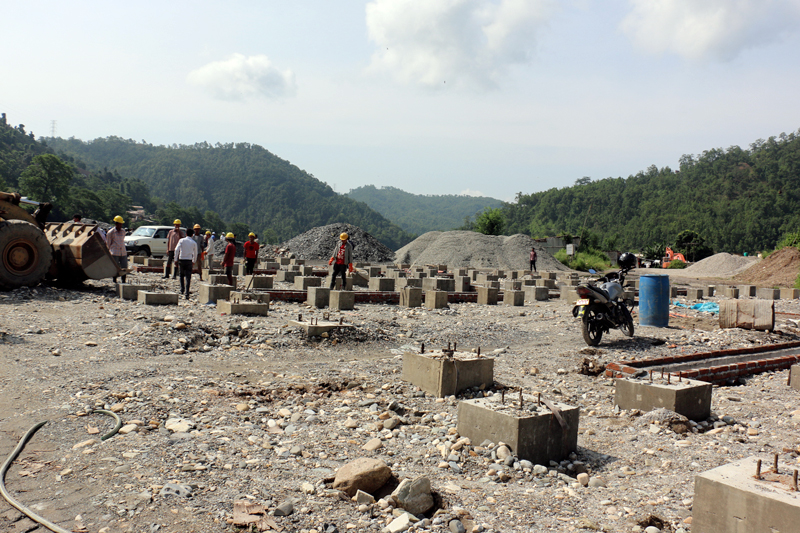Arun-III financial closure deal inked
Kathmandu, February 6
With almost 30 per cent of construction work of the India-backed 900-megawatt SJVN Arun-III completed so far, the developer company inked the financial closure of the hydroelectric project with seven banks here today.
Officials of five Indian banks, two Nepali banks and SJVN Arun-III Power Development Company penned an agreement to invest a total of Rs 101.28 billion in the project. The company will chip in an additional Rs 27 billion as equity investment.
According to the pact, among the Indian lenders, State Bank of India will invest Rs 35.52 billion, Punjab National Bank Rs 15.29 billion, Canara Bank Rs 15.28 billion, EXIM Bank of India Rs 12.25 billion and Union Bank of India will invest Rs 7.63 billion. Among Nepali lenders, Everest Bank will invest Rs 10.22 billion and Nabil Bank will provide Rs 5.13 billion for the project.
Arun-III is an export-based project, which will bring the largest-ever government-to-government level foreign direct investment from India worth nearly $1.2 billion.
On Tuesday, Investment Board Nepal had granted Arun-III project permission to ink financial closure with the aforesaid banks.
Nand Lal Sharma, chairman-cum-managing director of Satluj Jal Vidyut Nigam Ltd, India — which has been tasked with building the project — said the project was scheduled to be completed by 2023. “But we plan to complete it before schedule.” He added that the company had faced hurdles at the project site, including lack of proper road access to transport equipment on time.
“Nevertheless, we have received tremendous support from the Nepal government to cross the hurdles in a timely manner,” he said. Sharma added that the project had so far achieved almost 30 per cent progress in physical work and 12 per cent in financial work till date. “At present, we are executing construction work through our equity investment worth Rs 27 billion,” he said.
Meanwhile, Anil Shah, CEO of Nabil Bank, said the bank had made the investment to gain experience in large-size hydel projects in collaboration with multi-national firms.
“We believe that Nepali banks and financial institutions need to gain experience to handle large-size investments.”
The project has accelerated the civil, hydromechanical and electro-mechanical works, simultaneously.
The company had awarded the aforementioned works to an Indian firm — JP Construction — which has already started executing construction work. SJVN stated that it would start construction of a 400-kVA high-voltage cross-border transmission line from March.
IBN and SJVN had inked a pact in November 2014 for the project development agreement of ArunIII hydropower project. The project was supposed to start generating energy by 2020 as per the earlier agreement. However, IBN and SJVN reached an agreement later to complete the construction of the project by 2023.
Arun Dhaiman, CEO of the project, said there had been noticeable momentum in major work of the hydropower project, such as construction of headrace tunnel, audit tunnel and powerhouse.
Apart from shares being allocated to locals and free energy to the affected areas, the government will get Rs 330 billion as royalty in a period of 20 years and the project will also provide 21.9 per cent of the generated energy free of cost.
The project will generate 400 million units of power every year.
As per the agreement with IBN, the developer will hand over the ownership of the project to the government of Nepal after 20 years of commercial operation.






